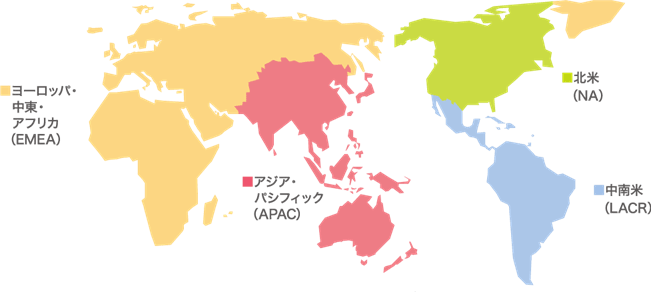グローバルサービス
ICT環境の構築、ガバナンス強化をはじめとする “お客さまのクロスボーダービジネスを支援”
- ソリューション
- 設計・構築
- アウトソーシング
- セキュリティー
- グローバル
- DX
グローバルビジネスを強化
提供サービス
アウトバウンド・サービス <日本企業が海外へ>
これから海外展開を検討する企業や、すでに展開済みのIT環境の見直しを検討している企業に向けて、ICT機器の調達からIT環境構築、保守・運用まで、世界100カ国以上を対象に、ワンストップで提案・提供しています。さらに、クラウドサービスへの移行対応やセキュリティー対策のベストプラクティスも提供しています。
インバウンド・サービス <海外企業が日本へ>
海外企業の日本拠点に対して、ICTインフラの企画から機器の調達、構築、運用、保守、廃棄までのライフサイクルすべてのステージで、マルチベンダーICT運用代行サービスを提供しています。また、日本国内の全47都道府県においてサービス提供が可能です。お客さまのニーズに合わせた柔軟なサービスを提供し、日本でのビジネス展開を支援します。
グローバル・ITガバナンス強化ソリューション
海外拠点のIT環境や、セキュリティーの脆弱性を調査し、その結果に基づいて明らかになった課題に対して、お客さまのニーズや要件に合った最適なセキュリティー強化対策、ガバナンス強化対策を提案します。また、効果的な施策策定のためのコンサルティングサービスから、導入、運用までもワンストップで支援します。
J's Marketplace®
グローバル展開を目指す蔵元と、日本各地の知られざる日本酒を発掘・輸入したい海外各国の輸入事業者との出会いの場を提供します。多言語翻訳サービスにより言葉の壁を解消するとともに、取引注文・輸送手配・輸出入通関手続きを円滑化し、DXで日本酒の輸出拡大を加速させます。
サービス提供可能国 ~強固なグローバルネットワーク~
サービス提供可能国は、アジア・パシフィック、北米、中南米、ヨーロッパ・中東・アフリカなど、世界各地域で約100カ国におよびます。
海外関連会社、各国パートナーとのサービス網をフル活用して、現地でのICT環境調査から、機器の調達、導入、オンサイトメンテナンス、運用管理まで、その地域の実情に合った最適なサポートサービスを提供します。

更新日:2024年06月27日
お問い合わせ
お客さまの立場で考えた、
最適なソリューションをご提供いたします。
お気軽にお問い合わせください。